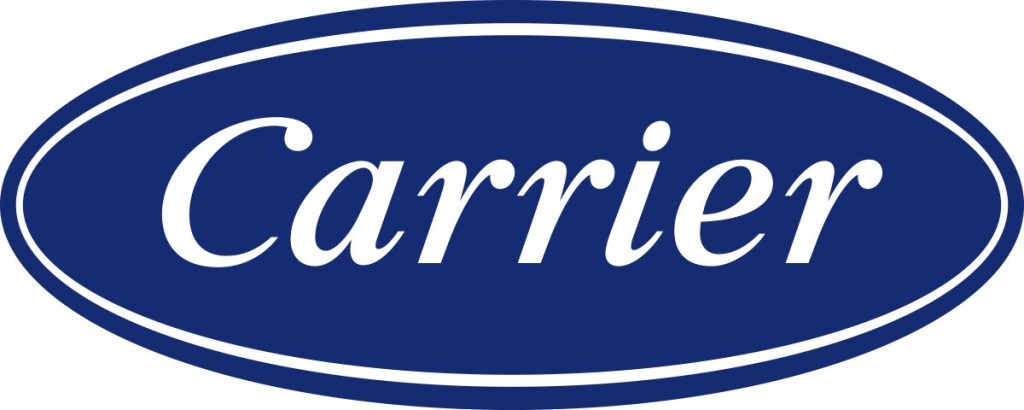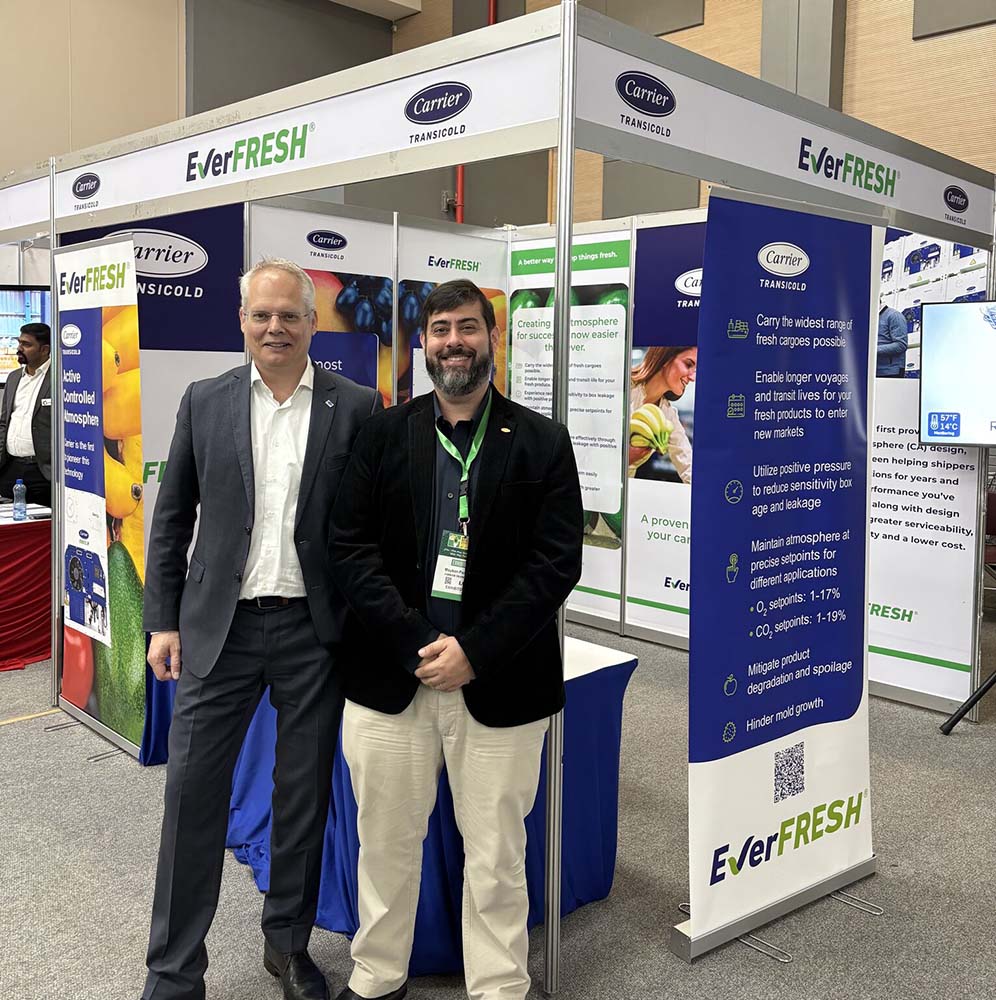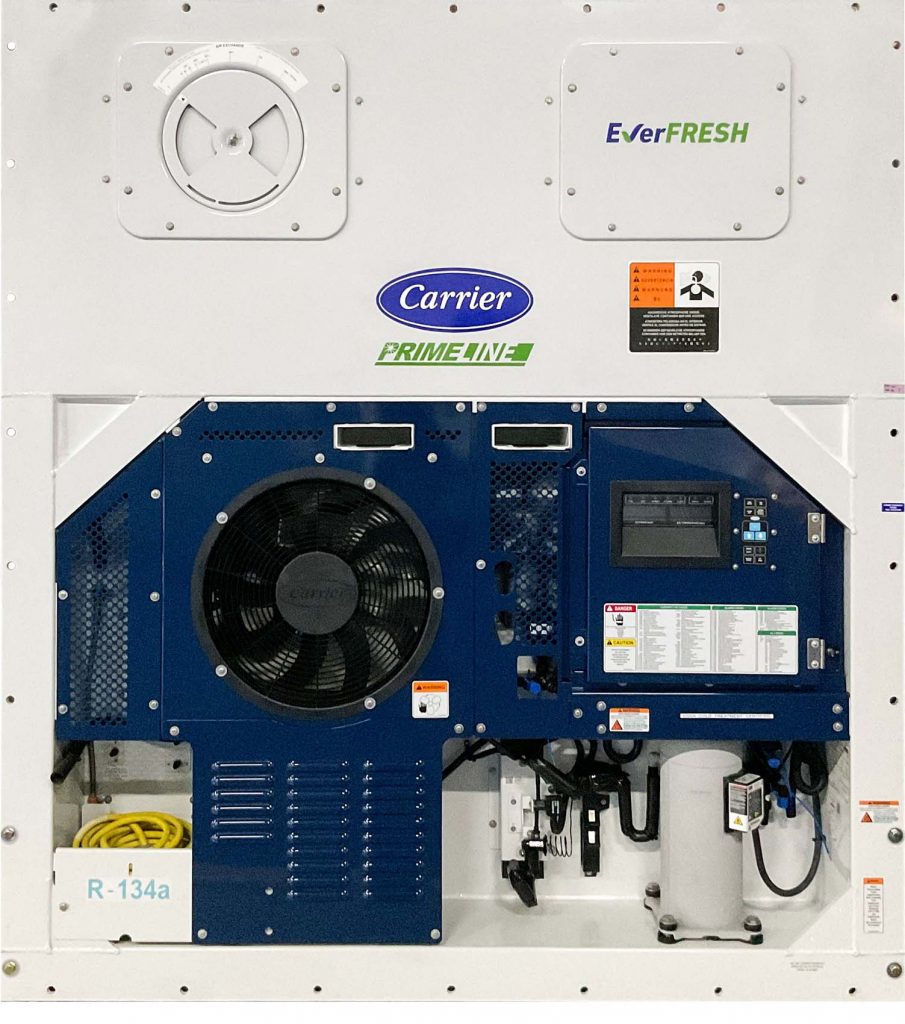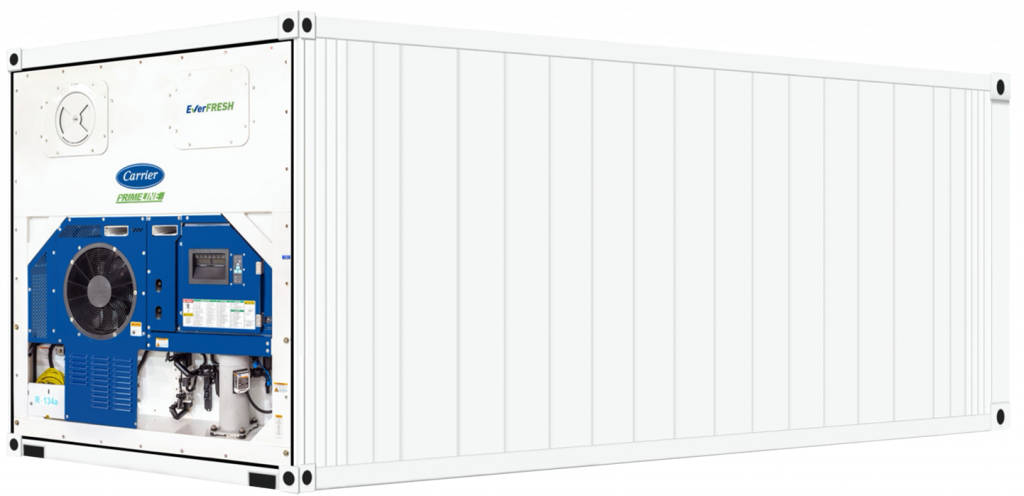


Bʏ Mᴀʀʏ Mᴡᴇɴᴅᴇ,
Kenya’s avocado sector continues to command global attention, and this year’s Avocado Africa Expo 2025 was no exception. Among the notable innovations showcased at the event was Carrier Transicold’s EverFRESH Active CA® controlled atmosphere (CA) system, a technology designed to extend the shelf life of fresh produce during sea freight. Floriculture Magazine had the opportunity to meet both Dr. Rob Veltman, Associate Director, Product Management and Global Commercial Postharvest Lead at Carrier Transicold, and Maykon Pereira, Field Service Manager, EMEA, for Africa at Carrier Transicold Container Refrigeration.

EverFRESH Active CA Explained
The system’s performance as outlined in a technical presentation by Rob Veltman, emphasized that Carrier Transicold, the company behind EverFRESH Active CA, holds the distinction of inventing controlled atmosphere (CA) technology for refrigerated containers in 1991.
The system works by adjusting oxygen (O₂) and carbon dioxide (CO₂) levels inside a container, creating an optimal environment that slows down the respiration rate of perishable produce.
This process effectively puts the produce ‘to sleep,’ and pausing the ripening process, preserving quality and extending shelf life during long sea voyages.
“As the largest container refrigeration solutions provider in the world, over 60% of all units in service are from Carrier,” said Maykon Pereira
Unlike passive CA systems, which rely solely on a produce’s respiration to modify atmospheric conditions within a container, EverFRESH Active CA actively pulls down oxygen levels using an onboard air compressor and nitrogen generator. This creates optimal gas conditions tailored to specific cargo requirements typically 2 to 5% O₂ and 4 to 10% CO₂ for avocados ensuring fruit quality is preserved throughout the cold chain.
“Proper orchard and postharvest management, combined with active controlled atmosphere, maximize the shelf life of Kenyan avocados and boost their market reputation. This has been validated by numerous customer shipments and third party trials” Veltman affirmed.
A significant benefit of EverFRESH Active CA is its ability to combat box leakage, a common issue during long-haul shipments and amongst older boxes. The system maintains a slight internal overpressure, preventing outside oxygen from seeping in and destabilizing conditions.
Studies by Wageningen University Research (WUR) have validated EverFRESH Active CA’s effectiveness in maintaining stable CA conditions and extending shelf life for various fruits, including avocados. The system keeps oxygen levels consistently and sufficiently low (around 4%) and carbon dioxide levels moderate (around 6%), which is ideal for preserving avocado quality during long shipments.

Addressing Quality Risks During Transit
Dr. Veltman highlighted the importance of combining cold chain innovation with rigorous pre-shipment management. Many quality issues, such as lenticel darkening, sunburn, or anthracnose, often stem from orchard practices or handling before shipment. Cold-related disorders like chilling injury or flesh browning can also develop if transit temperatures drop below recommended levels.
“A reefer is not a hospital, Dr. Veltman cautioned. “You should only ship avocados that have been handled properly because no technology can fully reverse orchard or pre-shipment mistakes.”
Nonetheless, EverFRESH Active CA helps mitigate transit risks. Its fast oxygen pulldown capability delays ripening, preserves firmness, and reduces the risk of CO₂ damage or off-flavors, providing a reliable option for exporters targeting premium and far-away markets in Europe, the Middle East, and Asia.
Maykon Pereira explained, “This product enables us to enhance the value of Kenyan avocados and support growers in delivering higher-quality fruit to more distant markets.”
Kenya’s avocado industry has been expanding its global footprint in recent years, with growers increasingly eyeing distant markets that require up to six weeks of shipping time. The combination of superior cold chain technology and improved postharvest management protocols could prove critical in safeguarding fruit quality and securing higher returns for exporters.
For more information, visit CARRIER TRANSICOLD’s Website.
